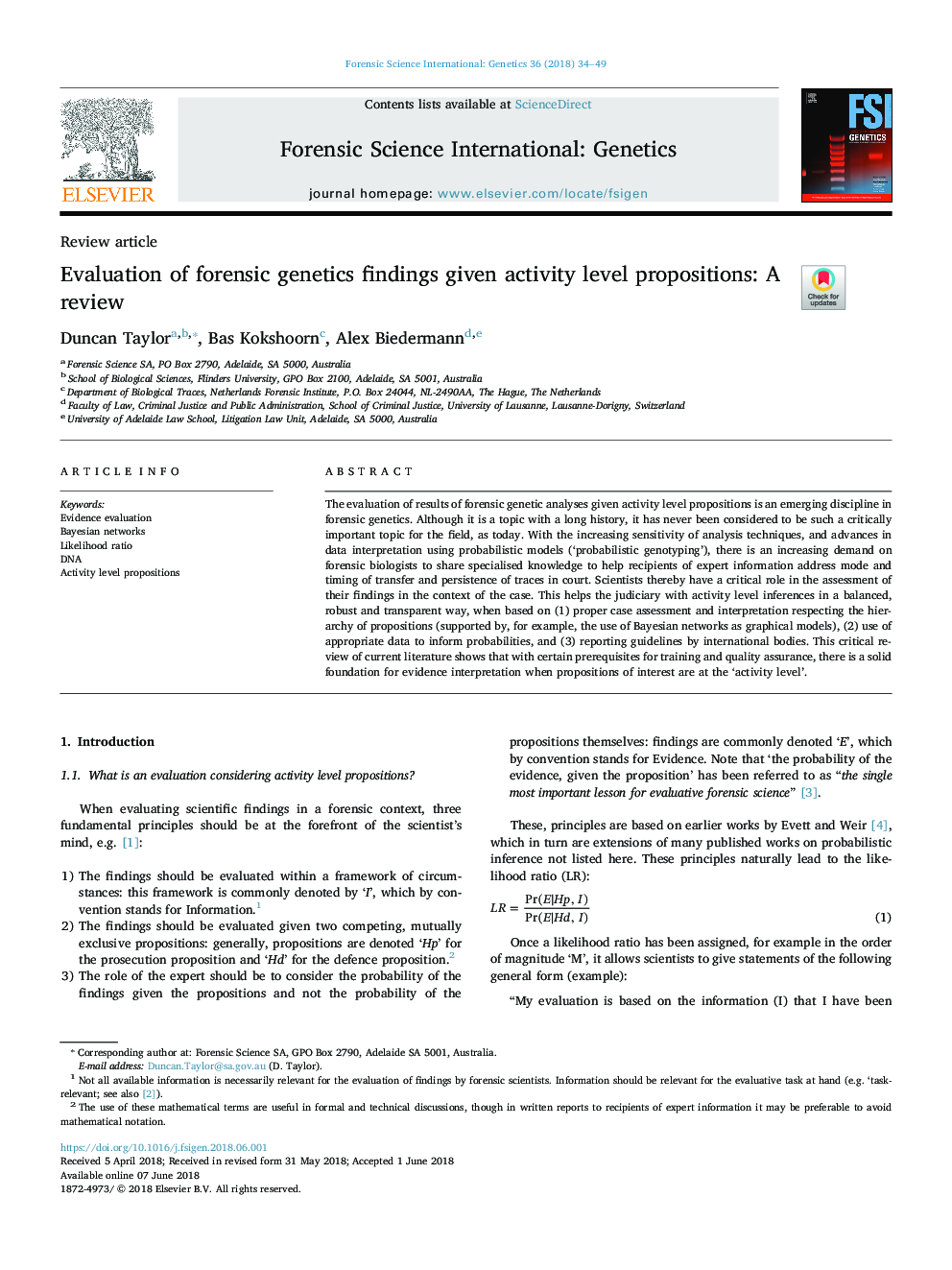| Article ID | Journal | Published Year | Pages | File Type |
|---|---|---|---|---|
| 6553205 | Forensic Science International: Genetics | 2018 | 16 Pages |
Abstract
The evaluation of results of forensic genetic analyses given activity level propositions is an emerging discipline in forensic genetics. Although it is a topic with a long history, it has never been considered to be such a critically important topic for the field, as today. With the increasing sensitivity of analysis techniques, and advances in data interpretation using probabilistic models ('probabilistic genotyping'), there is an increasing demand on forensic biologists to share specialised knowledge to help recipients of expert information address mode and timing of transfer and persistence of traces in court. Scientists thereby have a critical role in the assessment of their findings in the context of the case. This helps the judiciary with activity level inferences in a balanced, robust and transparent way, when based on (1) proper case assessment and interpretation respecting the hierarchy of propositions (supported by, for example, the use of Bayesian networks as graphical models), (2) use of appropriate data to inform probabilities, and (3) reporting guidelines by international bodies. This critical review of current literature shows that with certain prerequisites for training and quality assurance, there is a solid foundation for evidence interpretation when propositions of interest are at the 'activity level'.
Related Topics
Life Sciences
Biochemistry, Genetics and Molecular Biology
Genetics
Authors
Duncan Taylor, Bas Kokshoorn, Alex Biedermann,
